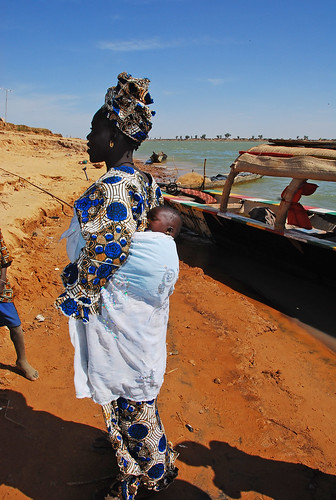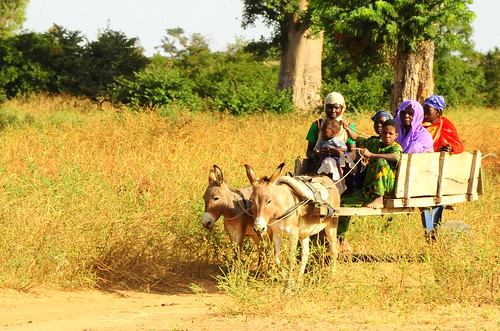Difference between revisions of "Adopting from Mali"
| Line 23: | Line 23: | ||
{{#eimage:http://upload.wikimedia.org/wikipedia/commons/thumb/b/b7/BamakoMali.jpg/800px-BamakoMali.jpg|410x579px|thumb|'''People gathered on a Bamako hillside..'''<BR/>Source: Wikipedia.org.}} | {{#eimage:http://upload.wikimedia.org/wikipedia/commons/thumb/b/b7/BamakoMali.jpg/800px-BamakoMali.jpg|410x579px|thumb|'''People gathered on a Bamako hillside..'''<BR/>Source: Wikipedia.org.}} | ||
| + | |||
| + | =Mali Adoption Alert= | ||
| + | |||
| + | <span style="color:red">'''Notice: Malian Law Restricts Intercountry Adoptions (May 1, 2013)''' | ||
| + | |||
| + | In December 2011, the Malian National Assembly passed a new Code of Person and the Family. The Code includes a provision that only Malian citizens will be able to complete intercountry or domestic adoptions from Mali. In the case of couples planning to [[adopt]], both members of the couple must be Malian citizens. Note: We understand that the law may allow Malian citizens who are also dual U.S. citizens to [[adopt]]. | ||
| + | |||
| + | The Department of State will provide updated information on [[adoption]].state.gov as it becomes available. If you have any questions about this notice, please contact the Office of Children’s Issues at 1-888-407-4747 within the United States, or 202-501-4444 from outside the United States. Email inquiries may be directed to AdoptionUSCA@state.gov. | ||
| + | |||
| + | |||
| + | |||
| + | <span style="color:red">'''Notice: New Malian Law Potentially Restricts Intercountry Adoptions (November 26, 2012)''' | ||
| + | |||
| + | In December 2011, the Malian National Assembly passed a new Code of Person and the Family. The Code includes a provision that could be interpreted to mean that only Malian nationals would be allowed to complete intercountry adoptions of Malian children. While the Malian Presidency did not issue a decree that the law is in effect, the U.S. Embassy in Bamako notes that some local officials and judges are applying the law. U.S. prospective [[Adoptive Parents|adoptive parents]] who are adopting from Mali may encounter delays because of the confusion about the Code. | ||
| + | |||
| + | The U.S. Embassy in Bamako is seeking clarification from the Malian central authority, Direction Nationale de l’Enfant et de la Famille, on when the law will take effect and whether the relevant provision would prevent U.S. citizens who are not also Malian nationals from adopting from Mali. We encourage [[adoption]] service providers and prospective [[Adoptive Parents|adoptive parents]] considering initiating new adoptions from Mali to refrain from starting the process until further information is available. | ||
| + | |||
| + | The Department of State will provide updated information on [[adoption]].state.gov as it becomes available. If you have any questions about this notice, please contact the Office of Children’s Issues at 1-888-407-4747 within the United States, or 202-501-4444 from outside the United States. Email inquiries may be directed to AdoptionUSCA@state.gov. | ||
Revision as of 23:12, 1 April 2014
Contents
Mali Adoption Alert
Notice: Malian Law Restricts Intercountry Adoptions (May 1, 2013)
In December 2011, the Malian National Assembly passed a new Code of Person and the Family. The Code includes a provision that only Malian citizens will be able to complete intercountry or domestic adoptions from Mali. In the case of couples planning to adopt, both members of the couple must be Malian citizens. Note: We understand that the law may allow Malian citizens who are also dual U.S. citizens to adopt.
The Department of State will provide updated information on adoption.state.gov as it becomes available. If you have any questions about this notice, please contact the Office of Children’s Issues at 1-888-407-4747 within the United States, or 202-501-4444 from outside the United States. Email inquiries may be directed to AdoptionUSCA@state.gov.
Notice: New Malian Law Potentially Restricts Intercountry Adoptions (November 26, 2012)
In December 2011, the Malian National Assembly passed a new Code of Person and the Family. The Code includes a provision that could be interpreted to mean that only Malian nationals would be allowed to complete intercountry adoptions of Malian children. While the Malian Presidency did not issue a decree that the law is in effect, the U.S. Embassy in Bamako notes that some local officials and judges are applying the law. U.S. prospective adoptive parents who are adopting from Mali may encounter delays because of the confusion about the Code.
The U.S. Embassy in Bamako is seeking clarification from the Malian central authority, Direction Nationale de l’Enfant et de la Famille, on when the law will take effect and whether the relevant provision would prevent U.S. citizens who are not also Malian nationals from adopting from Mali. We encourage adoption service providers and prospective adoptive parents considering initiating new adoptions from Mali to refrain from starting the process until further information is available.
The Department of State will provide updated information on adoption.state.gov as it becomes available. If you have any questions about this notice, please contact the Office of Children’s Issues at 1-888-407-4747 within the United States, or 202-501-4444 from outside the United States. Email inquiries may be directed to AdoptionUSCA@state.gov.
Hague Convention Information
Who Can Adopt
Residency
Age of Adopting Parents
Marriage
Income
Other
Who Can Be Adopted
How to Adopt
Adoption Authority
The Process
Traveling Abroad
After Adoption
SOURCE
Intercountry Adoption, Bureau of Consular Affairs. U.S. Department of State Country Information











